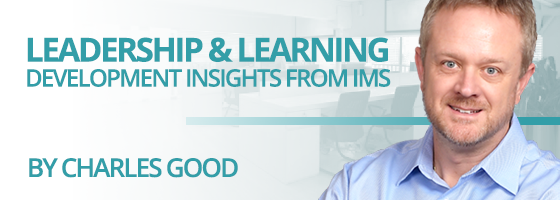Earlier this month The Institute for Management studies conducted its annual Summit with a great lineup of thought leader and member presentations. This year’s Summit was kicked off by Dr. Hal Gregersen, senior lecturer in leadership and innovation at MIT’s Sloan School of Management and recognized by Thinkers50 as one of the world’s most innovative minds. He has authored or coauthored ten books, translated into fifteen languages, including his most recent bestseller, Questions Are the Answer: A Breakthrough Approach to Your Most Vexing Problems at Work and in Life, which was the basis for his presentation.
Dr. Gregersen began underscoring the if you want better answers at work and in life, you need to ask better questions. Few things are as useless as finding the right answers to the wrong questions. Marc Benioff, founder of Salesforce, stated, “There is power in cultivating a beginner’s mind, listening deeply, and reflecting continuously in search of the right questions…on the path to meaningful answers.”
The goal is to find questions that are catalytic which challenge assumptions or reframe a problem in a meaningful way. If you want to ask catalytic questions more frequently then you need to create the following conditions or states where this behavior will happen more naturally. The questions that follow each state is meant to assist you in assessing how much of your time do you spend in that state in a typical day.
Unexpectedly Wrong
- How often are you dead wrong about something?
- How often do you acknowledge being wrong to others?
- How often do you respond “I don’t know” to a question?
Unusually Uncomfortable
- How often do people ask you uncomfortable questions?
- How often do you spend time in “strikingly different” places that evoke uncomfortable feelings?
- How often to you talk with “spectacularly different” people who evoke uncomfortable feelings?
Reflectively Quiet
- How well do you listen deeply when others talk?
- How many seconds, on average, do you wait quietly before others answer your questions?
- How much of your day do you devote to being reflectively quiet? Thinking strategically?
Which catalytic condition is most challenging for you? Once you know which condition is most challenging then you can actively take the necessary steps to make that condition more prevalent in your life.
The following tools will help raise your question asking IQ.
Question Journey
- Ask yourself how authority figures responded to your questions throughout your childhood and your career. This reflective exercise assesses whether your past encouraged you to ask more or less questions.
Question Audit
- During a 24 hour period , write down all the questions you ask, all of the questions you hear and all of the questions you ask in your head and do and don’t ask. At the end of the day, what percent of your statements in a typical conversation are questions? What is your Q&A ratio?
Question Burst
- This method has you select a challenge you care deeply about then invite a diverse group of people and brainstorm for up to five minutes. Each member contributes short, tough and non-toxic questions regarding this challenge. Look through the questions you have written down. Likely, you will discover at least one new idea to help solve your challenge. After doing several rounds, many experience more positive feeling regarding this challenge.
Peter Drucker knew the value of asking the questions and is quoted as saying, “the important and difficult job is never defined the right answer, it is to find the right question.” As you move up corporate ladder it becomes more about asking the right questions instead of having the right answers.
ABOUT CHARLES GOOD
Charles Good is the president of The Institute for Management Studies, which provides transformational learning experiences that drive behavioral change and develop exceptional leaders. Charles is an innovative and resourceful leader who specializes in bringing people together to develop creative organizational and talent strategies that enable business results. His areas of expertise include assessing organizational skill gaps and leading the design, creation and delivery of high impact, innovative learning solutions that achieve business goals.

1 Comment